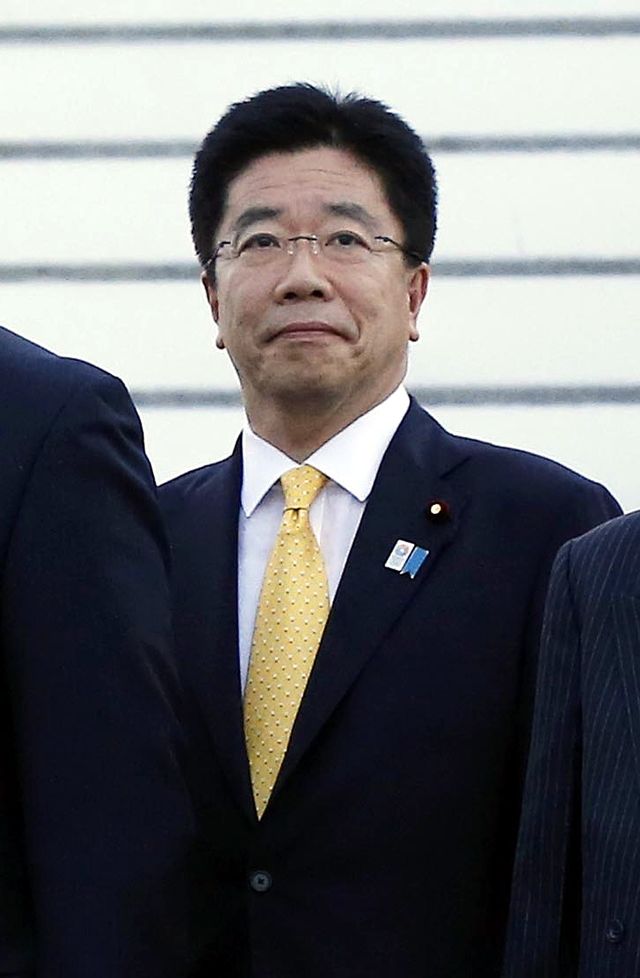[youtube https://www.youtube.com/watch?v=wg5CpKJVM18]
Tag: Europe
Economic Growth: Japan and America

Japan could be slipping back into a recession. Thankfully, this is unlikely to have a negative effect on America’s economy but internationally, concern is expected to increase. The reason America is less likely to be impacted is two-fold: a mere 4.1 percent of American exports go to Japan and the falling value of the yen vis-à-vis the dollar which results in cheaper Japanese imports in America. Experts predict at most, a decline of around a tenth of a percentage point.
The regions that could be negatively affected however is Europe and China; areas that are already dealing with the challenges of slow economic growth.
Japan’s disappointing performance may be connected to the escalation in its sales tax. This was somewhat substantial – an increase of 5 to 8 percent. While it did help in reducing the overwhelmingly large budget deficit, it simultaneously had the negative impact of making consumer spending less appealing. Clearly, the economy just wasn’t up to this kind of move.
Shinzo Abe, Japan’s Prime Minister last year put money into the fiscal system, lowering interest rates through bond purchases last year. At that time, the region encountered a peak, following a stagnation of over two decades. But now, growth in the economy has weakened to around 1.5 percent.
Perhaps Abe needs to do a bit of what he did a year ago to get the region back on track.
Best Countries for Business

Japan Versus UK
In a recent report by Bloomberg, Japan was ranked higher than the UK vis-à-vis the regions that are best to do business with. In this report it escalated four places, stealing the third spot, with only America and Hong Kong ahead of it. For measuring purposes, the review utilized six criteria. Two of these were: the extent of economic integration; preparedness of the local consumer base.
Perhaps another reason for Japan’s escalation in this review has something to do with its 14 percent drop in the yen against the dollar over the last year. This has increased its competitiveness in the export market.
However, Japan’s trade deficit for last year was extremely high with a substantial decrease in exports to China and Europe. Its exports have been plummeting for the last seven months with a drop in shipments of almost 6 percent in December 2012. Some analysts believe the deficit may have reached its nadir, given the expectation of an improvement in exports over the next few months. Once that happens – along with the general upswing in the world economy – there is a strong likelihood that the country’s trade deficit will shrink alongside it. This does not mean it will go into surplus in 2013 but at least it will be going in the right direction. One also has to take into consideration the escalation in the price of oil import. As well, given that Europe is still trying to deal with its debt, the region is less interested in Japanese exports.
Expanding China-Europe Business Co-operation
It seems that growth in China are resulting in all sorts of developments for the region, vis-à-vis other countries. According to Song Tao, China’s Vice Foreign Minister, one of these developments is increased co-operation with Europe. Indeed, there has been such significant progress that Song is hopeful that the long-term future will witness a “China-EU free trade area.” Currently the countries have plans in place to work together in the areas of finance, urbanization, sustainable development and trade and have already been united on a variety of global issues.
China and Europe have had a comprehensive strategic partnership in place now for close to a decade. While Europe was undergoing its substantial debt crisis, it was China which provided significant support, mainly through its $43bn IMF contribution. As well, it helped Europe buy European bonds and escalated imports from the region. China has also been supportive of Europe’s integration process.
Despite Europe’s assistance, China is still not completely out of the woods. Naturally, its weakened position has impacted its relationship with China. For example, according to China’s Ministry of Commerce, there was a reduction in foreign direct investment (FDI) from the EU to China by 6.3 percent year-on-year from January to September to $4.83bn. In addition, China’s exports to Europe plummeted 30.3 percent over the same time period.
Thus, according to Haitong Securities Co. Ltd.’s Deputy GM and Chief Economist, Li Xunlei, China’s general FDI situation is decline as inflation has rendered its environment for FDI somewhat less attractive than it has been in recent years. The fact that China’s economic growth has slowed in recent years hasn’t helped the situation much either.
So while Europe has been instrumental in assisting China’s development, there is still much to be done on the east’s end to really get it back in an attractive investment environment for foreigners.
Fortune Global 500: Asia and America
In a Fortune Global 500 list on the world’s largest companies based on revenue, in an unprecedented move, China came in higher than Japan. Despite this achievement, American firms still took the most positions on the list. Indeed, a staggering 132 companies from the United States were featured, with China as number 2 on the list, featuring 73 companies and Japan with 68.
Europe’s Impact
While Europe lost 11 companies in 2011 on the list, China gained 12. Nonetheless, as Fortune pointed out, even though there is a financial crisis in Europe, and Japan has encountered many disasters, the big international companies have continued to escalate in both profit and revenues.
Despite its lead position, America shouldn’t be sitting back on its laurels. The superpower should be aware of the fact that it was the only country to lose so many companies on the list over the last 10 years, having lost 65 headquartered companies throughout that timeframe. In addition, companies in China were showing post-crisis success in 2009, with a move to gas and alternative energy and away from oil. After a hard 2011 vis-à-vis investments, so far 2012 is going well, in America especially, but also noteworthy throughout the world.
East-West Currencies
Clearly connected to all this news is the fact that trading companies are not as enthusiastic about converting the American dollar to the Chinese Yuan. Indeed it is the US dollar that companies want to accumulate since it is strengthening. What happened was, that at the time the Yuan was increasing, rather than buy the US dollar and sell the Yuan to pay for imports, companies would borrow US dollars from banks so as to pay for imports, which shorted the US dollar, which was good since it was anyway the US dollar was weakening. Today the opposite is the case; traders are hanging on to US dollars for longer which impacts China’s monetary condition since its inflows force central bank intervention. China thus finds itself in a strange place, with its domestic economy requiring easier monetary condition but flows leading it in the opposite direction.
Europe’s Mess Impacting Asia
Since Europe is still trying to battle out its debt crisis, the impact on Asia in not particularly promising. Indeed, the region’s oil prices are staggering, nearing $93 per barrel. Yet it should not be forgotten that despite this, the outlook for both the economies of China and America is positive. Still, the facts on the ground remain that there are concerns – crude plummeted more than 10 percent – for example, while investors fear the two mega economic environments will not continue to climb as they have been doing in recent times. And the political unrest that is plaguing Greece alongside the general negativity spawning Europe is not helping the situation much either. This situation would undermine crude demand but if America’s economy does continue its upswing (as is hoped but not necessarily anticipated),then the crude price is likely to collapse even more. If this does happen, other oil products like gasoline will also come down in price. Hopefully this will result in a domino effect on inflation which will enable politicians and economists to potentially alleviate monetary policy and in turn, expand economic growth.
Asia’s Role
So how does Asia fit into all of this? The region’s economies definitely have a more positive predicted image vis-à-vis Europe’s economic chaos than other places. And it is doubtful that China will be subject to difficulties in this area either. So that’s some good news. At least, that’s the opinion of Andrew Colquhoun, head of Asia-Pacific American-based firm. He feels that Asia’s restricted exposure to banks in Europe will be able to protect it against financial failure in this debt-riddled continent.
In addition, the economies in Asia depend on foreign households and consumers who purchase Asian exports than they are on foreign banks providing funding. As well, there is the consideration as to the possibility of occurrences in Europe can in any way limit Asian sovereign ratings. Colquhoun believes not. In addition he is not convinced that for the short-term, China’s financial picture is anything to worry about, irrespective of the facts that are pointing to a weakening in Asia’s economy as a whole.
So while there is good news for various parts of Asia, Europe needs to fix itself if it wants to see a continuation of an economic recovery from both the east and west of the global economy.
Asia’s Economic Success: In Spite of Europe’s Mess
In recent years, although other eastern markets have failed to thrive in debt-ridden European environments, Asia has not been one of them. The region has not encountered nearly as much strife as its neighbors and in fact on the contrary, has enjoyed impressive financial growth. For western businessmen therefore, Asia fares pretty high on the list of possible potential addresses due to less red tape; stable investment opportunities and higher interest rates, especially in countries like Indonesia.
Indeed, Indonesia’s GDP increased by almost 6.50 percent last year which is the highest since the Asian crisis began (and way better than neighboring China and India) and it does not need to depend on global trade flows for success either. Its population is large and growing and its youth has minimal debt and thus greater spending capacity and it offers a huge variety of commodities, being self-sufficient in oil and gas.
Oil Issues
So that’s great for Indonesia. But is this the case throughout the region? Do all eastern markets have so much to offer potential western investors? Perhaps not. Looking at oil prices that are increasing at uncontrollable rapid speeds, Asia’s growth could be shot in the food, making it a rather unattractive place for western businessmen to lay their hats.
In addition, since Asia does not stand alone, both the western world and indeed the global community at large, needs to understand that it will be impacted as well. Should its growth be stumped, this will have a domino effect on Europe and won’t do any favors for America’s recession recovery either. As Tweeter FirstpostMarketsLive noted, “Asia is largest consumer of oil having surpassed North America in 2007 to account for more than 31% of world demand.”
Asia’s economic conglomerates are concerned. Nomura, a multinational conglomerate offering financial services has been taking a stand on the potentially problematic matter. The company’s chief economic advisor, David Resler noted, even though there isn’t as great a threat to a resumption of the financial crisis, this oil price mega increase at the beginning of the year has replaced that threat in as great a severity.
So ultimately there is a lot of optimism out there for potential western investors into Asia. But should the oil price increase crisis not be solved, it could be downhill for not only the entire region, but potentially the whole world. Asia needs to sort this out, and fast.
Japan’s Yen Versus the Euro
For nearly a decade now, Japan’s Finance Minister, Jan Azumi has been warning that the yen’s escalation against the euro have happened rather too quickly. Europe has been battling to solve its debt crisis which has resulted in a 15 percent appreciation of the yen against the Euro during the last six months of 2011. This has continued into 2012 which has witnessed a further 2.4 percent yen increase.
Impact on Japan’s Economy
Unfortunately, it’s not just Europe that is suffering from the debt crisis. According to UBS foreign-currency strategist, Daisaku Ueno, it is negatively impacting Japan’s economy. He pointed out, “in
dollar/yen, companies are adjusting to yen strength. But as Japan exports more to the Eurozone than it imports from it, it is more difficult to adjust to euro weakness.”
However, this has not been affecting overseas investors. They are still purchasing Japan’s bonds which is thus elevating the appreciating pressure on the yen. As well, the currency was 2 percent stronger at the end of last week than the figure for October 31 – the most recent dollar/yen intervention.
Asia’s High End Art Market

Hong Kong has been instrumental in boosting Asia’s art market over the last few years, especially with its 300 percent increase between 2009-10. This is thanks to the wealthy Chinese who have been enthusiastically purchasing art, resulting in Hong Kong becoming a global art sales center. It seems like art and other alternative investment options – such as wine – have in general been on the rise irrespective of global financial misfortunes such as the collapse of Lehman Brothers three years ago.
Asia’s Rich Getting Richer
It seems that the wealthy individuals in the Asia region are just increasing their financial worth. For example, the region is even beating Europe, standing at $10.7tr., whereas Europe is only up to $10.2tr. Art investment definitely has a lot going for it, being a little different, enjoyable and having pretty good returns. As well what is also good news for Asia is that vis-à-vis the art market, it has not been impacted by the Euro Zone debt crisis. Indeed, the Mei Moses Global Art Index found almost a 12 percent increase in 2011 to November.
One art consultant, Bobby Mohseni, noted, “it may not be a good time for sellers but it's an excellent time for buyers. During late 2008 and 2009, I highly advised clients to buy. With Chinese contemporary art, some prices have gone exceptionally high and that's just over a decade … so it's best to look at upcoming or mid-tier artists.”
In addition, confidence in China’s contemporary art market remains quite high, even though the same confidence is lacking in the European and American counter markets. In other words, Asia does not have to feel the negative impact of what is going on in the western world – as has been seen through its art market.
Japan Enters Europe
Panasonic Plans to Globalize Phones
Panasonic is planning on entering the European market with its smartphone in March 2012. As well, over the next four years, the company hopes to ensure 15 million units are ready for overseas sales, with Europe being the start of its entry into the world market.
Panasonic has made this decision on reflection of how the cellphone market is increasingly moving toward smartphone use globally. In this frame, it seems that expectations for growth overseas are quite substantial. Panasonic is not intending to miss out. In addition, the company has created a new smartphone business model and in the future will be expanding its offerings. The company hopes that its sales hit 1.5m in Europe in the next fiscal year and over the next four years for 15 million units to reach Europe, Asia and America.
In light of this goal, a few months ago, Panasonic established the Systems & Communications Company (SNC). Via this branch, the electronics firm will be able to fully expand its internal resources, such as the factory it has in Malaysia. At the moment, this is where the phones are made for the Japanese market, which will now be the primary manufacturer for Panasonic’s first global model.

